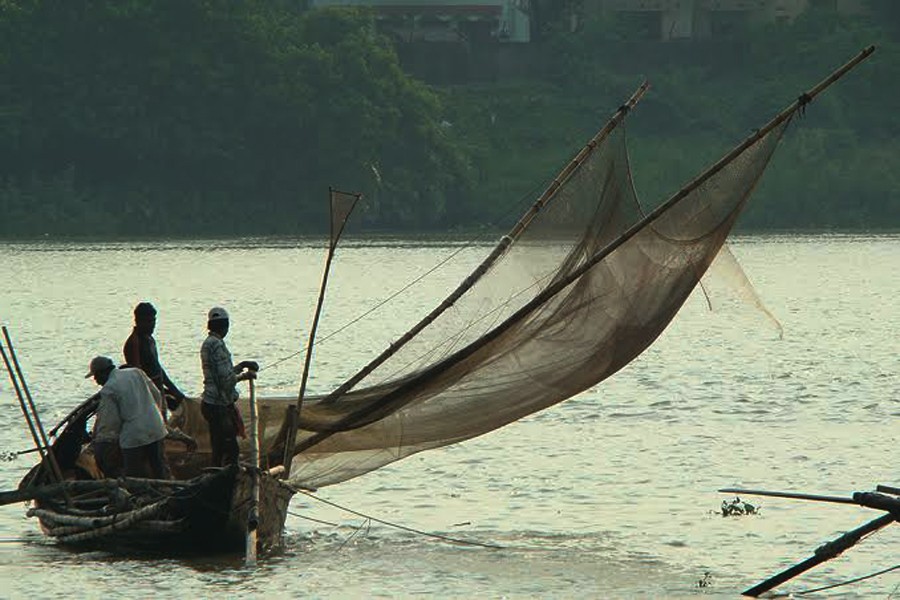
Published :
Updated :

Fishermen of the country are a community time forgot. They are among the poorest of this poor country. They are also engaged in one of the most hazardous occupations. It is they who brace themselves for the deadliest storms and tidal bores and as a result hundreds die every year in the Bay or in the turbulent Padma while catching fish. Brief news items routinely report a large number of fishermen as missing and there is hardly any follow-up story on their ultimate fate.
Another menace they have to live with is attack and looting by Myanmar pirates as well as their Navy. On Wednesday, a fisherman was killed and two others received gunshot wounds after Myanmar Navy chased and opened fire at six Bangladeshi fishing trawlers near Saint Martin's Island in the Bay of Bengal. The government fails to take up the matter with the Myanmar government. As if fishermen's lives are the most expendable in the country. This indifference would be more inexcusable when set against their massive contribution to the life and economy of the country.
According to the fisheries department, there are an estimated 1.8-million registered fishermen in Bangladesh. They are mostly self-employed or employed by some other fishermen. Sixty-seven per cent of the people's animal protein intake, 2.43 per cent of national GDP and 22.14 per cent of the agricultural GDP and 1.05 per cent of foreign exchange earnings come from the fishery sector. And the credit for the sector's significant contribution to economy primarily goes to the fishermen. But the politics of change or economics of change pass them by. One does not even hear of the NGOs taking up any programme for development of this luckless lot. Moreover, due to their economic vulnerability, many in society tend to look down upon them. They rarely receive the same recognition as farmers and other rural communities. Apparently, their connection with those in power is too weak to advocate for their needs effectively.
Annually, the fishermen face a 147-day fishing ban, which includes a 22-day ban on catching hilsa in October, a 60-day ban on catching jatka (hilsa fry) during March and April, and a 65-day ban from May 20 to July 23. These bans are essential for the breeding and conservation of marine life and ensuring sustainable fisheries. In the meantime, how do the fishermen survive and feed their families? When these restrictions are enforced, the fishing community is pushed to the brink of survival, as the government-provided food assistance during these periods is inadequate. As a 22-day ban on catching Hilsa began from Saturday (October 12) midnight, fishermen in the coastal region once again are voicing concern about their impending economic hardship. There is a call for increased food assistance and cash aid during the ban, access to life-saving equipment, deep-sea weather signal broadcasting, and loans on easy term, just to weather the storm.
Against this bleak backdrop, the government's plan to introduce insurance coverage for fishermen is a welcome development. The Financial Institutions Division (FID) has been tasked with developing a project to implement the insurance scheme through the state-run Jiban Bima Corporation (JBC). If effectively implemented, this coverage would provide a vital safety net for fishermen and their families in cases of accidents, illness, or death. Without such protection, these families are left financially vulnerable when disaster strikes, sinking them further into poverty. Offering insurance would also help mitigate the long-term economic hardship of the fishing communities entirely dependent on fishing for survival.
As a fish-loving nation it is essential that fishermen are given every consideration and protection.
aktuhin.fexpress@gmail.com


 For all latest news, follow The Financial Express Google News channel.
For all latest news, follow The Financial Express Google News channel.